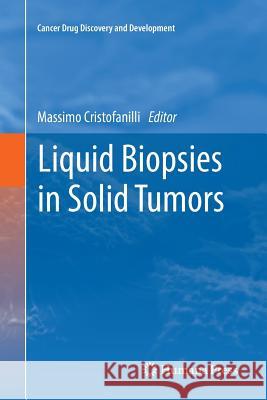Liquid Biopsies in Solid Tumors » książka
topmenu
Liquid Biopsies in Solid Tumors
ISBN-13: 9783319845302 / Angielski / Miękka / 2018 / 161 str.
Kategorie BISAC:
Wydawca:
Humana Press
Seria wydawnicza:
Język:
Angielski
ISBN-13:
9783319845302
Rok wydania:
2018
Wydanie:
Softcover Repri
Ilość stron:
161
Waga:
0.25 kg
Wymiary:
23.39 x 15.6 x 0.94
Oprawa:
Miękka
Wolumenów:
01
Dodatkowe informacje:
Wydanie ilustrowane











